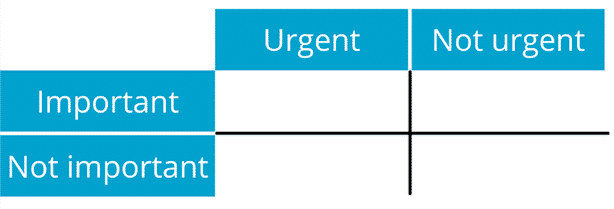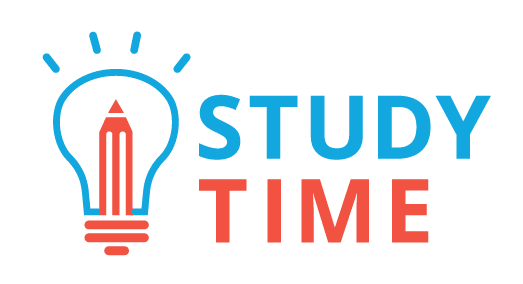It’s mid-year(ish), internals are coming in hot as you get into the swing of the year. You’ve got extracurriculars, a job, friends, and a bunch of other things outside of school.
How do you keep up with it all?
Take Stock
You can’t know what you’re not doing if you barely have your class timetable memorised. The best place to start when tackling a lot of internals and assessments is in planning.

A lot of us avoid planning, either because we think we have it all in our heads already, or because we think it will take too much of our precious time.
In reality, planning is the key to making sure you’re confidently on top of things. It removes the guesswork and reduces your stress later because you know exactly what you need to do.
Auditing your work really means taking stock, and investigating what it is you need to do to bust out everything on your plate.
Auditing a Subject
So, how do we do this?
Firstly, go through each of your class subjects. It could just be a list of each of them. For most of us, this is around 5-6 subjects, but it will vary depending on your course.
Secondly, go through the work you’re doing in each subject. A good place to start is the name of the Achievement Standard you’re currently working on. You may want to consider future standards as well, but it’s probably not worth going any further than what you’re expected to do in the current term.
Thirdly, within each standard, outline the specific concepts or learning outcomes. If you’re completing an external, the StudyTime checklists can be a great tool for this. Alternatively, you can check out the specific standard on the NZQA website, or find the information on your school’s classroom software.
Now that you’re looking at different concepts, you can identify your pain points a lot easier. If there are topics listed that you’re unsure of, make a note of them. If there is content that has been covered in class, but you’re feeling fuzzy on it, note this as well.

An audit for one subject may look like this:
Subject: Maths
- Standard: Apply Linear Algebra in Solving Problems
- Concepts: General linear equation formula; constructing a linear equation; putting a formula in context; using a formula to make a prediction; comparing different linear equations; writing a report that answers a question.
- Notes: Solving equations is fine, but writing them up from text is tricky. Also super unsure what specific things need to go into a report, nor how many statements will get me to the grade I want.
- Standard: Investigate Bivariate Numerical Data Using the Statistical Enquiry Cycle
- Concepts: Types of data; summary statistics; how a statistical report is structured; how to make comments from a graph; how to put data into a bivariate graph; how to decide if a relationship is significant or not; how to pose a statistical question; how to analyse a graph.
- Notes: Writing is fine, but I’m worried I’ll miss things, or forget certain parts on the day. Calculations are fine but reporting all of the numbers in a way that will help me pass is something I’m unsure of.
Prioritise
It’s easy to feel overwhelmed when you have a massive list of tasks and concepts in front of you. Which is what you’ve just done via stocktake.
At this stage, it’s key that your list of things to do are just that, things to do. Too often, we shoot ourselves in the foot by just telling ourselves to ‘just do it’ with no clear way of achieving it.
Instead, you want to give it a wee think, and turn your abstract statement into something more workable.
Let’s take some of our comments from above and turn them into tasks, rather than some concerned observations.
- Super unsure what specific things need to go into a report → Revise the stat report structure.
- Reporting all of the numbers in a way that will help me pass is something I’m unsure of → Revise the main statistics I need to report and make a summary list to help me remember.
Once you have tasks to complete, it’s time to prioritise them. It’s all well and good to know what you need to do, but assessments have deadlines, and we need to work within them.

There are a lot of different ways to prioritise things, but for something like your assessments (or productivity-oriented), the Eisenhower Matrix works a treat.
The Eisenhower Matrix
As you can imagine, some very smart people with time on their hands have pondered how to best prioritise. From this, tools such as the Eisenhower Matrix have been used by people all over, to help keep them on track.
It works like this, you chuck the different tasks under different categories based on the importance and urgency of a task. It makes a fun table like this:

What should you take into consideration when deciding which box everything goes in?
- The deadline: This should dictate how urgent it is.
- The perceived difficulty of the task: Things that are tricky are probably going to take you longer because you have to stop and figure things out more often.
- The breadth or depth of the task: If it’s a large task, it’ll take you more time and indicates that the task is probably important.
Make a Plan(ner)
Once you know which tasks are a bigger priority, it’s time to lay this out in either a calendar or another kind of planner. The goal of this is to see where those really intense bottleneck weeks are in advance and come up with solutions to get around it.
Through this, you may notice that there’s one week where multiple assessments are due across subjects (think, around week 7 and the final week of term. If you can anticipate this in advance, you can look at asking for things like extensions, if you feel you’ll need it.
The other strategy is getting things done in advance (unheard of, we know). Using the quieter weeks of the term to get a head start on things can save you a lot of stress in the long run. Think of future-you.

Tools like Google Calendar are great for keeping track, especially if you’re already using things like Google Classroom. You can set up repeated reminders, colour coordinate your subjects, and block out your terms. If you prefer your life on paper, something like a diary would also be useful for this.
The important thing is that you don’t just set up the calendar and forget about it. You need to keep returning to it and reorienting yourself as you move through the weeks. You won’t have it all memorised from just writing it out. The whole point is that it’s a dynamic tool that you alter to suit your needs.
Internals can be funny beasts at times, in the sense that some can be done completely at school, while others require more work behind the scenes. Written-based subjects are particularly notorious for following you home, so it’s useful to bear this in mind as well.
Once this is done, you’re ready to start tackling this well-manicured hit-list.
Get it Done
So you know what you need to do, and you know what is at the top of your task list. Now, it’s time to make sure it all gets done.
Again, take your deadlines into account. Fight that little voice at the back of your head that wants to focus on what you find easy, or the topic you like. The whole point of this is to avoid that very thing.
In saying this, there is merit to starting with something small. Our brains are hedonistic wee things (hedonistic, adjective: engaged in the pursuit of pleasure) and sometimes need a quick win to get kick-started.
A quick win might be something like writing out a formula and annotating the different variables. It’ll take 3 minutes with the help of uncle Google, and will make a resource you can come back to ask you approach more difficult questions.
Additionally, give yourself days to complete a big task. Rome wasn’t built in a day and that essay won’t be either. If you’re working on things in advance, you’ll usually have multiple days or weeks to complete something. Make the most of it.

A quick win gives your brain a sense of accomplishment in the form of dopamine. It can help you to feel like you’re making progress, and you’ll be more likely to be spurred on to do more.
Spacing out your work is also a supported method of retaining more information. School isn’t just about putting together a bunch of content to met a set criteria. Instead, it’s about learning skills, ways of thinking, and how to put your thoughts into a coherent format. So, leveraging how your brain takes in information is a great way to ensure you’re learning for yourself as well as a grade.
Keeping up Momentum
You might find yourself losing the motivation to get through when everything is organised and feeling pretty. Prevent boredom by interleaving your work between tasks and topics.
Interleaved practice involves studying multiple related topics at the same time. We don’t mean exactly at the same time, but by switching between them. For example, you might switch up working between researching for a bio report, and research for a history essay. They both involve similar skills which can be helpful for each other.

Think of it this way, no assessment you do will involve just one skill. They may involve writing, researching, analysing, but always thinking. You don’t often think about how you learnt the things you just do, because you already know how to do it. Many skills translate between classroom subjects and so it’s helpful to exercise these concurrently.
On the note of keeping up momentum, once you have completed a task, make sure you have a way to note it down and tick it off. As we mentioned before, the brain loves feeling accomplished, and being able to keep track of your progress is a sure-fire way to maximise this.
Phone a Friend
Sometimes, a bit of outside help is what you need for assurance and motivation, especially when you hit a wall.
Getting help could look like:
- Going over the material with a classmate or friend.
- Using resources and planners.
- Getting someone from home to help.
- Having a tutor for specialised help.
Learning isn’t all about sitting at a desk in your room alone with your nose in a book. We learn a lot through discussion, practice, and error but don’t always jump to these methods first. Take advantage of the people and resources around you, because they’re there.
When the Going gets Tough
Study isn’t always fun. It can be full of frustration, misconceptions, and cursing. However, it’s important to remember that not knowing something is the first step to being able to know it. You have to know what you don’t know, before you can work it out.

It’s normal to not get something the first time around, or even the second. The times when you feel you’re making the least progress is often just before things fall into place. It’s all part of the process, trust that.
You’ll Get There
With assessment after assessment being thrown your way, this time of year can feel like a slog. Knowing what you need to do, and when you need to do it is a great way to stay on top of things, and make sure you have time for other things in your life.
School and learning doesn’t have to feel like an all-encompassing sentence. Organising yourself and your studies will give you a good framework to work from, and the assurance that you’re on track.

0 Comments